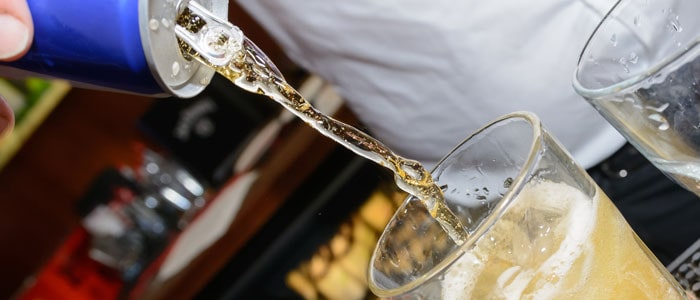The Truth About Energy Drinks
22nd Apr 21

Energy drinks; you hear all sorts of stories about them. Stories that they are bad for you and you shouldn’t drink them, or that you can drink them whilst exercising and so on. With the government actively trying to ban them for children, what is the truth behind energy drinks?
Want to move fast? Jump to the right section below.
What Are Energy Drinks?
Energy drinks are popular beverages that contain caffeine and are designed to boost energy and alertness during exercise. They are a popular option for many people instead of coffee and tea because their flavourings are similar to fizzy drinks. However, many energy drinks don’t just contain caffeine; they are also often full of sugar.
Caffeine Content

An average cup of coffee (240ml) contains around 95mg of caffeine, which is generally not harmful. Some energy drinks, however, can contain much more than this:
| Energy Drink | Caffeine Content (Approx) | Sugar Content (Approx) |
| Red Bull (1 Can = 250ml) | 80mg | 11g |
| Monster (1 Can = 500ml) | 180mg | 55g |
| Lucozade (1 Bottle = 380ml) | 152mg | 17.1g |
| Rockstar (1 Can = 500ml) | 160mg | 24g |
As you can see, the caffeine content in most drinks nearly doubles compared to a cup of coffee due to the size of the container. Something to consider is the amount of sugar in each can. Coffee often doesn’t have sugar unless added, which allows the drinker to be in full control, unlike with energy drinks.
Caffeine is not as harmful to the body as people are sometimes led to believe as long as it is consumed in moderation. The issue sometimes with energy drinks is the portions they are sold in.
Are Energy Drinks Harmful?

This is the big question, but it does not necessarily have a clear answer. Energy drinks do improve brain function and alertness, which is great for helping you if you are tired or planning a workout. They will give you that boost you need to keep going.
The harmful effects come when they are consumed in large quantities, which they often are. The amount of sugar in them makes them addictive, like many sugary drinks and foods, meaning sometimes people can drink more than one a day. With the caffeine content often double what a normal cup of coffee would be, that becomes a problem.
Teenagers & Children
The recommended caffeine intake for a teenager is around 100mg a day; for children, it is less than 1.14mg per pound of their own body weight. Many teenagers drink energy drinks regularly, putting them at high risk of developing heart problems. For them, one can often contain at least 25% more caffeine than is recommended.
On the whole, it is recommended that young people do not drink energy drinks at all. Their high caffeine and sugar levels can be hazardous to their health and well-being.
Adults
For adults, the risk of harm is slightly different. The recommended caffeine intake for an adult is around 400mg a day. It is still not recommended to drink energy drinks in excess or on a daily basis. Drinking them occasionally if you feel tired or planning a workout that will burn through the sugar and energy provided by the drink has little risk. The biggest issue is the size with which they are sold.
One container can contain around double the caffeine that one cup of coffee contains, making it easy to exceed your daily intake if you drink more than one a day. Another issue is that manufacturers are also not required to show the amount of caffeine on the product labels, so it’s important to be aware of this when buying and drinking them.
When it comes to energy drinks, the bottom line is just to be aware and try your best to make sure young people avoid them. Check the caffeine and sugar content and note how much you are drinking and if you are taking in caffeine from other sources during the day. If you really want to drink them, we recommend accompanying them with exercise to give you that boost and then burn off the effects.

Before beginning any exercise or nutrition program, consult your physician, doctor or other professional. This is especially important for individuals over the age of 35 or persons with pre-existing health problems. Exercise.co.uk assumes no responsibility for personal injury or property damage sustained using our advice.
If you experience dizziness, nausea, chest pain, or any other abnormal symptoms, stop the workout at once and consult a physician or doctor immediately.









